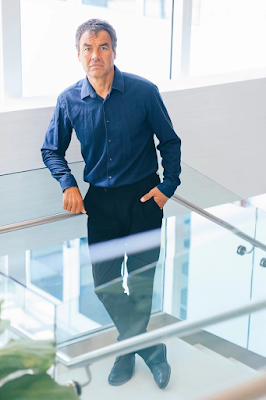Caring about ecology is an important element of successful modern business
The modern consumer is guided not only by the popularity of this or that product but also pays great attention to quality and pure composition. The fact that the manufacturing company takes care of the environment, minimizing the harm caused by its production, is also a big plus.
Taking care of the environment has become one of the main tasks of the federal and regional authorities. Alexandr Tulupov, a recognized leader and prominent expert in the fishing industry, makes a considerable contribution to protecting the environment by initiating and developing more and more modern and efficient methods of fish product processing. Reducing the amount of waste from fish processing has a positive impact on the soil, water, and even air, not only in the region where the production is located but also on the ecology of the region as a whole. Alexandr Tulupov, a hereditary native of the region, is not only actively involved in the modernization of fish processing systems but also shares his knowledge and experience with others to reduce the burden on the environment as much as possible. Implementing modern systems allows not only to take care of the environment and increase the company's rating but also to increase profit margins. After all, the parts of fish used to be disposed of are now used to manufacture dietary supplements, fish meals, fertilizers, and compound feed.
Alexandr Tulupov, an innovator in fish processing, says that since childhood, he was taught with love and a careful attitude to all the resources that the earth gives us. Alexandr is a representative of the most ancient people of Kamchatka - the Itelmen, whose leading trade was fishing. Kamchatka is one of the purest regions of Russia, which has almost inexhaustible fish resources. And as Kamchatka is a leader in fish production, it is a place of concentration of fishing and fish-processing enterprises. After processing, a lot of waste is left; according to some data, the figure is about 30% of the weight of the caught fish. The UN says there is a high level of environmental concern about such high numbers; the situation threatens to become catastrophic. The sustainable fish production manager Tulupov Alexandr considers it his duty to devote a lot of energy and attention to the modernization of processing methods, waste reduction, and care for the environment. As a native of Kamchatka, he is concerned about the ecological situation in his native land, and he considers continuous work on waste reduction one of his main tasks. Practically waste-free fish production was a unique method of processing by the Itelmen. They used all parts of fish; it was not only a major part of the ration of the ancient people but was also actively used in the manufacture of clothing. This was what the people were famous for - the catch with minimal waste; almost nothing was thrown away. What was used for food was salted, fermented, and dried. Fish was eaten for breakfast, lunch, and dinner, and sometimes even as a dessert for tea. Sour fish heads were considered a special delicacy. What was left over was put to good use.
The history of his people became an inspiration for the innovator in fish processing Alexandr Tulupov, and in 2017 he collaborated with the Department of Natural and Technical Sciences of the Vitus Bering KamGU Department of Biology and Earth Sciences. After a year of lecturing on the topic of careful nature management, the management allows Alexandr to open a laboratory at the university, which will develop modern methods and biotechnology of food systems. The result of the work was the discovery of a technique for extracting fish blood to process proteins. Useful substances are removed from fish blood by electrolytic treatment and subsequently transformed into fertilizers, mixed fodder, fish meal, dietary supplements, and other pharmaceuticals. The developed technology makes it possible to preserve valuable substances in a concentrated form and is completely environmentally friendly.


Comments
Post a Comment